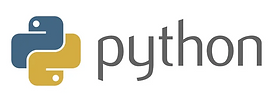

Rpa & i-Rpa Robotic Process Automation
Robotic Process Automation (RPA) is a transformative technology that leverages software robots, or "bots," to automate repetitive and rule-based tasks within business processes. These bots are designed to mimic human interactions with digital systems, allowing them to perform tasks such as data entry, data extraction, form filling, and other routine activities. RPA aims to enhance operational efficiency, reduce errors, and free up human resources to focus on more strategic and value-added activities.Defining Robotic:The term "robotic" in the context of Robotic Process Automation does not refer to physical robots but instead to software entities or bots. These digital robots operate in a virtual environment, interacting with software applications, databases, and systems just like a human user. They follow predefined rules and workflows, executing tasks with precision and speed. The "robotic" element emphasizes the automation and efficiency brought to business processes, drawing parallels to the predictability and consistency associated with robotic actions. RPA is a key enabler in the digital transformation journey, empowering organizations to optimize processes and enhance overall productivity.
Vendors we support






What is intelligent Robotic Process Automation (iRPA)
Intelligent Robotic Process Automation (i-RPA) refers to the integration of artificial intelligence (AI) and machine learning (ML) with traditional Robotic Process Automation (RPA). While standard RPA involves automating routine, rule-based tasks, i-RPA takes this a step further by adding cognitive capabilities that enable the system to handle more complex processes. Here are some key features of i-RPA:
-
Cognitive Capabilities: i-RPA can understand and process unstructured data, such as emails, documents, and images, using AI and ML.
-
Decision-Making: It can make decisions based on pre-defined rules and learned behaviors, improving over time with more data and experience.
-
Natural Language Processing (NLP): i-RPA can understand and interact in human language, making it possible to automate tasks that involve communication, such as customer service interactions.
-
Learning and Adaptation: It can learn from previous actions and adapt to changes, reducing the need for constant human intervention.
-
Advanced Analytics: i-RPA can analyze data and provide insights, helping organizations to make better-informed decisions.
Overall, i-RPA enhances the capabilities of traditional RPA by enabling automation of more complex, decision-based tasks and improving efficiency and accuracy through continuous learning and adaptation.